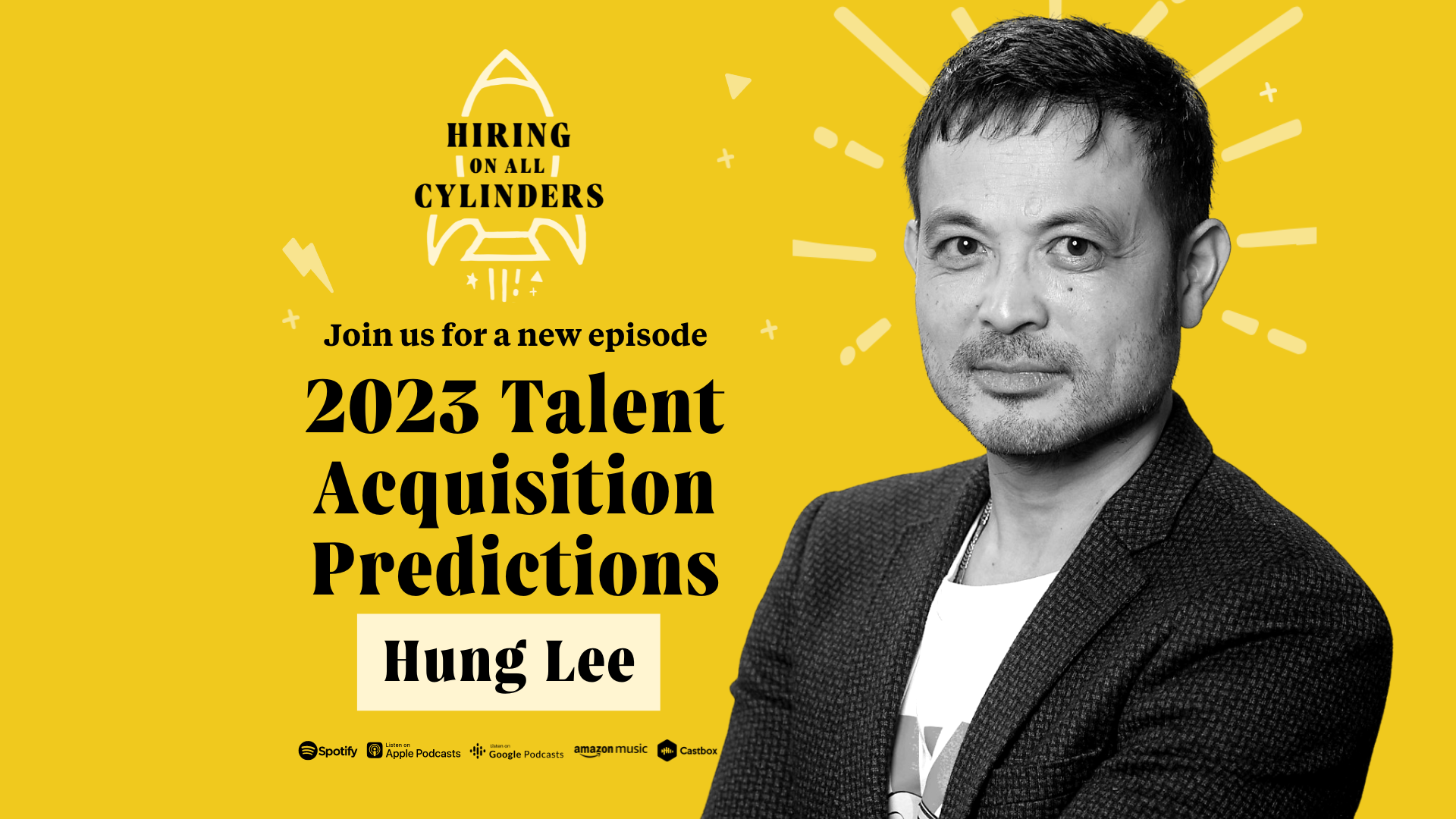According to Forbes, Gen Z will make up 27% of the global workforce by 2025. The new wave of employees will come with a different set of workplace expectations and priorities than the generations before.
of HR professionals believe that AI has many benefits and a positive impact on the recruitment process.

What does the future of talent acquisition look like? How can TA leaders effectively harness emerging technologies? And has the pandemic changed recruitment forever?
Our founder and CEO, Chris Abbass, recently sat down with the renowned talent expert Hung Lee to discuss these pressing questions.
With over 25,000 weekly subscribers to his Recruiting Brainfood newsletter and numerous global talent leaders acknowledging his expertise, Hung is one of the most prominent voices in talent acquisition.
In this article, we share five key insights from their conversation, which can be heard in full on episode 11 of Chris’ podcast, Hiring On All Cylinders: “2023 Talent Acquisition Predictions.”




